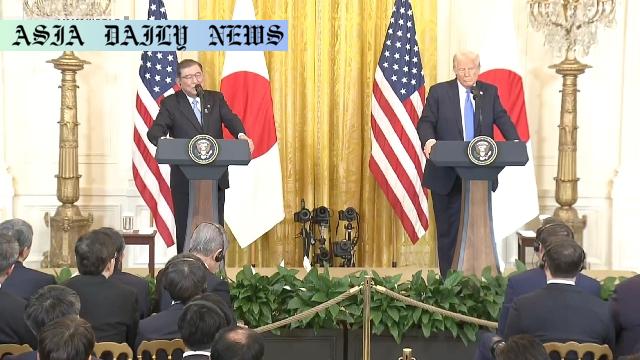Alaska LNG Exports: Japan and US collaborate to increase LNG trade, exploring joint ventures while addressing price and contract concerns.

Introduction: Strengthening US-Japan Energy Ties
At a recent summit, Japanese Prime Minister Ishiba Shigeru and US President Donald Trump unveiled plans to enhance their bilateral trade ties through liquefied natural gas (LNG) exports. This collaboration symbolizes an effort to address economic and geopolitical priorities, particularly tackling trade imbalances and supporting energy security. The proposed measures also aim to revitalize Alaska’s economy by leveraging its proximity to Japan and abundant oil and gas reserves.
The Vision: Expanding Alaska LNG Exports
During the summit, Trump and Ishiba confirmed that Japan would begin importing significantly higher volumes of LNG from the United States. Terming this as a “historic development,” Trump highlighted the strategic alignment this shift would bring. Alaska, with its proximity to Japan and rich natural resources, stands as the ideal hub for such an arrangement, making the transportation of LNG logistically efficient.
The Economic Agenda: Reducing Trade Deficits
Reducing trade deficits with countries like Japan has been central to Trump’s economic strategy. By exporting clean LNG to its Asian partner, the US aims to boost its economic gains while offsetting trade imbalances. Additionally, President Trump emphasized a mutual interest in joint investment initiatives with Japan, specifically targeting Alaska’s oil and gas sectors. Such ventures could create employment opportunities and stimulate economic growth locally.
Hurdles to Overcome
While the proposed export increase and potential joint ventures show promise, several challenges loom large. Pricing mechanisms remain unclear, raising doubts about how competitive American LNG will be for Japanese importers. Additionally, contract duration and investment certainty pose potential roadblocks to the project’s long-term success. Observer skepticism reflects the complexity of executing such large-scale international initiatives.
The Impact on Alaska
For Alaska, this development could act as a much-needed economic stimulus. By positioning itself as a major LNG exporter, the state stands to gain from new employment opportunities, infrastructure investments, and revenue streams. Moreover, this collaboration aligns with Trump’s broader policy of revitalizing traditional energy sectors across the US.
Future Prospects
The success of this initiative rests on sustained bilateral discussions and a focus on mutual benefits. By addressing pricing concerns and ensuring transparency, the US and Japan could unlock new opportunities for economic cooperation. The outcomes of these negotiations could serve as a model for similar trade initiatives between other global players in the energy market.
Conclusion
The discussion between the US and Japan on Alaska LNG exports marks a pivotal point in their economic and energy partnership. As both nations work toward common goals of growth and sustainability, this collaboration could redefine regional trade and energy dynamics. Overcoming the existing hurdles will require a commitment to transparency and long-term planning, but the potential rewards are significant for both parties.
Commentary
The Potential of US-Japan LNG Trade
The recent discussions between the US and Japan regarding LNG exports from Alaska present an intriguing narrative of economic collaboration and strategic growth. With Alaska’s rich resources and logistical advantages, this initiative could redefine energy partnerships between the two nations. However, this project also highlights the challenges of balancing domestic priorities while fostering international trade.
The Economic and Geopolitical Context
For President Trump, this partnership addresses two key objectives: reducing trade deficits and reviving traditional energy sectors in the US. Japan, on the other hand, benefits from diversifying its energy portfolio and enhancing energy security through reliable LNG imports. While these goals align on paper, their practical implementation will undoubtedly require meticulous planning and negotiation.
Navigating the Challenges
One of the most pressing concerns remains the pricing and contractual aspects of the initiative. With energy markets being highly competitive, the US must ensure that its LNG shipments remain affordable and attractive to Japanese buyers. Moreover, the success of the proposed joint ventures will hinge on robust investment frameworks and mutually beneficial agreements.
Final Thoughts
The US-Japan LNG collaboration represents an opportunity to strengthen bilateral ties while addressing domestic and global energy challenges. By adopting a pragmatic and transparent approach, both nations can create a model partnership that benefits their economies and sets a precedent for future energy trade agreements globally.


